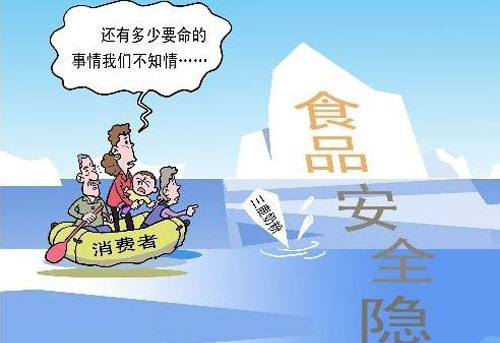 Food safety refers to foods that are non-toxic and harmless, meet the required nutritional requirements, and do not cause any acute, sub-acute or chronic hazards to human health. As the saying goes, “The people use food as the heavens.†In recent years, an endless stream of food safety problems have caused ordinary people to worry about this “sky.†So what are the problems with our food safety? What can protect our food safety?
Food safety refers to foods that are non-toxic and harmless, meet the required nutritional requirements, and do not cause any acute, sub-acute or chronic hazards to human health. As the saying goes, “The people use food as the heavens.†In recent years, an endless stream of food safety problems have caused ordinary people to worry about this “sky.†So what are the problems with our food safety? What can protect our food safety? From clenbuterol, “sterilizing†cucumbers, “blasting†watermelons, to dyeing steamed buns, reconstituted bread, plasticizers... The recent food safety scandals have been frightening and scary, and how to be relieved to become a topic that people have to pay attention to. The concentration of these incidents erupted, to some extent, causing panic in food safety in the world, especially in developed countries and regions, and also seriously dampened the local people's confidence in food safety. The issue of global food safety has not only become the focus of the news media, but also has brought severe challenges to food safety work in various countries.
"Before the word 'eating' is a conscience 'good'." Some netizens sigh. Some netizens pointed out that China’s food safety special rectification has always had the problem of “not fighting†and “fighting to dieâ€. The important reason is that the connection between administrative law enforcement and penalties is not enough. Some cases of suspected crimes have not been handed over and administrative punishments have not been handed over. Instead of penalties, the supervision loses its deterrent power. Some netizens suggested that the establishment of a blacklist for food safety should be followed by an illegal and lifetime ban on businesses and individuals who violated food safety laws and regulations.
From the perspective of the food industry, food safety issues also reflect the dilemma of the low level of informationization in the food industry in China. The informatization of the food industry is a major trend. However, in the food industry in China, there are many small businesses, generally small scale, and low profit margins. Domestic IT companies have not paid enough attention to the food information market. With the continuous development of new technologies and new applications of the Internet of Things, full-depth chain-style information management has become a commonplace.
Regarding food safety supervision, from the technical point of view, although China's food safety supervision has begun to use electronic tags, tracking information through information records, independent third parties in video production, processing, storage and transportation, and consumer fields. Surgeons, but only limited to a few companies.
Compared with developed countries, there are no well-integrated IT products designed specifically for food companies in China. At present, the informationization of food companies has problems such as system independence, fragmented information, incompatibility, and lack of uniform standards in each department, resulting in low utilization of information. The application of Internet of Things technology to food safety management is to establish “electronic files†for all foods, dynamically collect their flow information in the entire food supply chain, and finally achieve traceability, position tracking, and active control at the first time. Harm to a minimum.
Building a three-dimensional Internet of Things system not only traces the origin of food, but also seamlessly senses, monitors in real time during the food production process, and kills food safety issues in the cradle.
Engineered Versailles Wood Floors
Engineered Versailles Wood Floors,Parquet Flooring Tile,Solid Oak Wood Flooring,Unfinished Parquet Wood Flooring
Shaoxing Haohua Timber Industry Co., Ltd. , https://www.woodtopiafloor.com